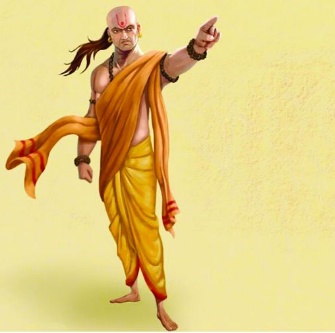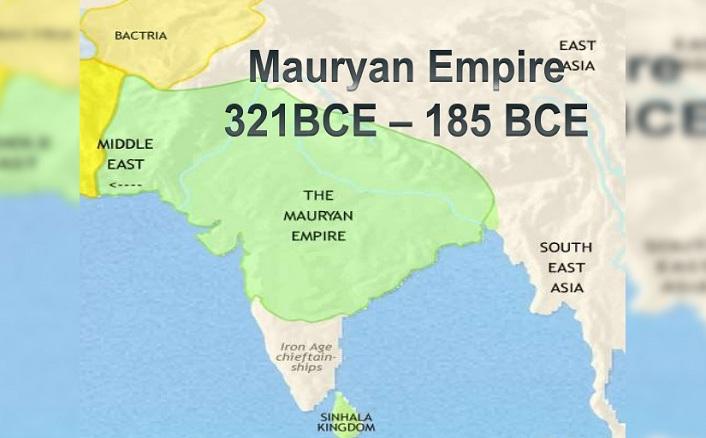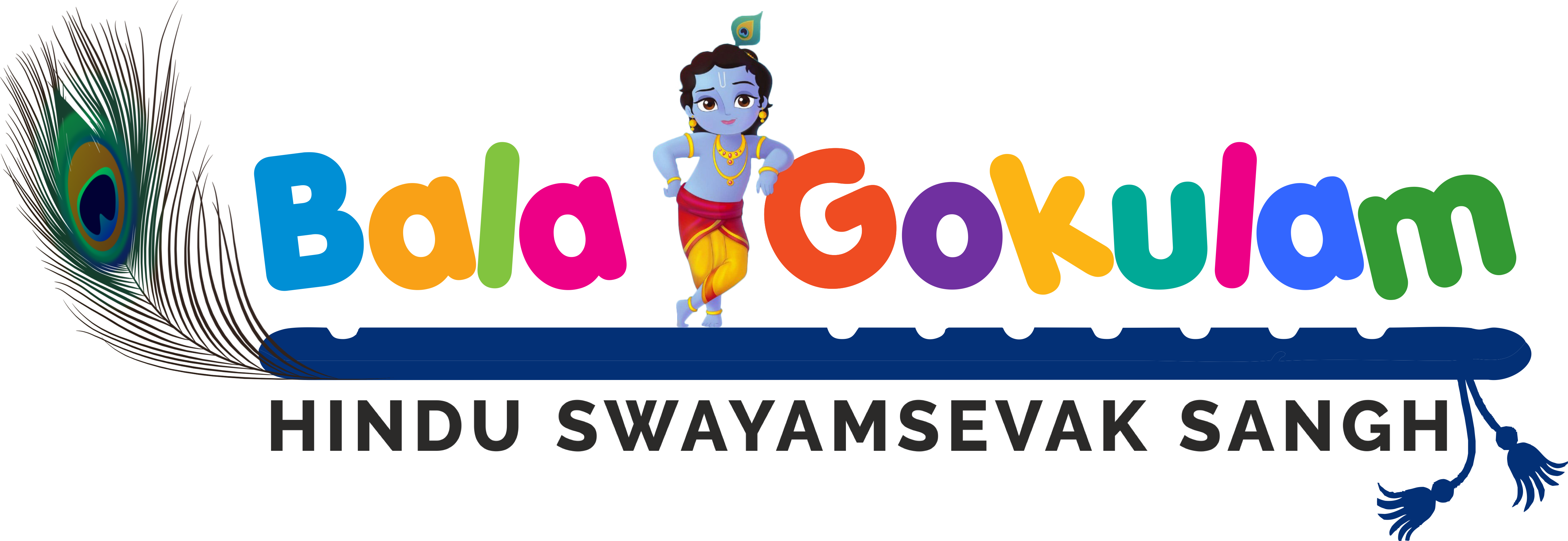Chanakya
Once upon a time, an average looking man was walking on the streets of the Pataliputra (today’s Patna city in India) for his routine work. In his hurried walk, he happened to stumble upon a stump of a noxious grass and injured his foot. The grass was deeply rooted in the earth and it was not easy to uproot it out. Little upset, he sat down right there in the burning sun. He poured a sugar-syrup on the grass and stood by as if he was waiting for something!! A passing-by kid, named Chandragupta Maurya, was watching him curiously, but carefully. All of a sudden, several ants and other insects came attracted to the sugar-syrup. They completely destroyed the grass. Chandragupta curiously asked the man, “It was just grass. Why did you do it?”. The brahmana replied back, “It was poisonous (evil) and fatal. And all evil things should be destroyed completely regardless of how big or small it may be. This is everyone’s duty and I would even remove a king if he were to walk the path of evil.” This man was not just any brahmana, he was the great polymath Vishnugupta, who is popularly known as Chanakya or Kautilya.
 Vishnugupta, or Chanakya, lived in the capital city of Pataliputra in the Magadha empire during the period 350-275 BCE. His father, Chanak, was a learned brahmin. Being a teacher himself, Chanak knew the importance of education. He started teaching his son Vishnugupta at a very early age. Chanak was a noble, and self-respecting brahmin. He would not tolerate any injustice or adharmic deeds. Naturally, the corrupt and arrogant Magadha King Dhanananda did not like him. Chanak was soon falsely accused of a crime and was put in the prison where he died. Chanak’s family was also harassed by the king but nobody raised a voice against this injustice caused to Chanak and his family. Vishnugupta was a young boy at the time and was extremely disturbed by his father’s death. Since his life was also in danger, he had to leave Pataliputra but he took a vow to avenge his father and fight against the corrupt King Dhanananda.
Vishnugupta, or Chanakya, lived in the capital city of Pataliputra in the Magadha empire during the period 350-275 BCE. His father, Chanak, was a learned brahmin. Being a teacher himself, Chanak knew the importance of education. He started teaching his son Vishnugupta at a very early age. Chanak was a noble, and self-respecting brahmin. He would not tolerate any injustice or adharmic deeds. Naturally, the corrupt and arrogant Magadha King Dhanananda did not like him. Chanak was soon falsely accused of a crime and was put in the prison where he died. Chanak’s family was also harassed by the king but nobody raised a voice against this injustice caused to Chanak and his family. Vishnugupta was a young boy at the time and was extremely disturbed by his father’s death. Since his life was also in danger, he had to leave Pataliputra but he took a vow to avenge his father and fight against the corrupt King Dhanananda.
 Vishnugupta went to the University of Takshashila. This is one of the first few universities in the world where students from many different places (countries) studied in variety of subjects. It is an amazing fact that world used to go to education centers in Bharat to learn. Vishnugupta studied the Vedas and the Upanishads there. His acumen and shrewdness in politics were notable right from childhood. His keen interest in economics and politics compelled him to gain proficiency. Just like his father, he was disciplined, bold, and fearless. He would get involved in many debates with his teachers on various subjects. Due to his intelligence and leadership qualities, he was dear to all, including other students and teachers. After completing his studies, he started teaching at the University. Many kings and aristocrats were his students. Not only did he teach various subjects, but he also taught his students about values, attitudes, and patriotism to make them good and responsible citizens.
Vishnugupta went to the University of Takshashila. This is one of the first few universities in the world where students from many different places (countries) studied in variety of subjects. It is an amazing fact that world used to go to education centers in Bharat to learn. Vishnugupta studied the Vedas and the Upanishads there. His acumen and shrewdness in politics were notable right from childhood. His keen interest in economics and politics compelled him to gain proficiency. Just like his father, he was disciplined, bold, and fearless. He would get involved in many debates with his teachers on various subjects. Due to his intelligence and leadership qualities, he was dear to all, including other students and teachers. After completing his studies, he started teaching at the University. Many kings and aristocrats were his students. Not only did he teach various subjects, but he also taught his students about values, attitudes, and patriotism to make them good and responsible citizens.
During that time, Bharat (India) was divided into various kingdoms and only a handful of them was as big as Magadha. All others were small and most of them were engaged in fighting against each other. This worried Vishnugupta as he knew this would invite invaders to attack Bharat. He always dreamt of a united Bharat, ruled under one administration, and by one king. Although his profession was teaching, he established a spy-network to keep himself informed with the proceedings of various kings and their kingdom as well as the ones bordering them.
During that time, the Greek king, Alexander III of Macedon, also known as Alexander the Great, had the ambition to win the entire world. He even successfully conquested and acquired all the kingdoms in the middle-east and was ready to attack Bharat.  Chanakya was aware of Alexander’s ambition of seizing Bharat and knew that Alexander and his troops were exceptionally brave, skilled, and equipped with enough arsenal to bring Bharat to its knees. He left the University to gather and unite all Bharatiya kings to present a formidable defense to Alexandar. He traveled all the bordering kingdoms warning them about the grave danger of invasion and tried to convince them to put aside their enmity and unite. He even sought help from King Dhanananda whom he deeply resented. But Dhanananda refused and further humiliated Chanakya. Even after requesting arduously, only a handful of kings had accepted his request. In the beginning, Alexander defeated a few small kingdoms in the bordering areas with the help of self-indulgent Bharatiya King, Ambhi, who betrayed his own people and joined forces with the enemy. Unfortunately for Alexander, he could not move into Bharat any further because of the strong and dreadful retort from other Bharatiya kings who were advised by Chanakya and formed an alliance. Finally, he had to return back to his country, and thus, Bharat was saved from the endeavor of Alexander.
Chanakya was aware of Alexander’s ambition of seizing Bharat and knew that Alexander and his troops were exceptionally brave, skilled, and equipped with enough arsenal to bring Bharat to its knees. He left the University to gather and unite all Bharatiya kings to present a formidable defense to Alexandar. He traveled all the bordering kingdoms warning them about the grave danger of invasion and tried to convince them to put aside their enmity and unite. He even sought help from King Dhanananda whom he deeply resented. But Dhanananda refused and further humiliated Chanakya. Even after requesting arduously, only a handful of kings had accepted his request. In the beginning, Alexander defeated a few small kingdoms in the bordering areas with the help of self-indulgent Bharatiya King, Ambhi, who betrayed his own people and joined forces with the enemy. Unfortunately for Alexander, he could not move into Bharat any further because of the strong and dreadful retort from other Bharatiya kings who were advised by Chanakya and formed an alliance. Finally, he had to return back to his country, and thus, Bharat was saved from the endeavor of Alexander.
Vishnugupta’s intelligence helped turn the tables into his favor irrespective of the circumstances. His philosophies and strategies are still followed by many. He later ousted the corrupt King Dhanananda and replaced him with his pupil Chandragupta Maurya, who later established the great and mighty empire, Magadha, and fulfilled his guru’s dream of united Bharat.
Many great aristocrats, royals, and warriors had once been his students. There was no field of study with which he was not acquainted with and had a good deal of understanding of everything. He was, in other words, a genius polymath. Although he had expertise in many subjects, his favorite subjects were politics and economics (artha-shastra). He was very proud and fond of his profession of teaching. He used to say that “a mother and a shikshak (teacher) have the ability to bring about a revolution”. If they desire, they can change the future of the current generations. They can play a bigger role in influencing the characters of individuals and help build a society that holds esteem values and principles high. Moreover, if they further desire, they can even overthrow powerful and corrupt monarchs, which the Shikshak Chanakya himself proved by defeating the arrogant King Dhanananda.

As previously discussed, Chanakya had built a strong spy-network to keep himself informed about the matters of various kingdoms around Takshashila. This gave him an advantage over the ruthless politicians who often struggled to pressurize Chanakya. He was known for planning his strategies meticulously to minute details, along with backup plans, and also for their perfect implementations. His calculations were never wrong. Moreover, he would never disclose any of his plans to anyone unless it was absolutely necessary. Nobody could make out what was going on in his mind. Due to his secretive and harsh nature, he was able to employ his stratagems at the right time and keep his enemies oblivious. He believed that everyone (kings) had their own weaknesses and they can be defeated in one way or another. In addition, this renowned masterful political strategist is responsible for discovering one of the most common warfare techniques, Koot-Yuddha (Guerilla Warfare). Chanakya envisioned Bharat (India) as a united nation ruled under one administration. He knew that only united Bharat could protect herself and her culture from foreign invasions. His favorite student (pupil) was the brilliant Chandragupta Maurya. Chandragupta started his studies under Chanakya from a very young age. For Chandragupta, he was not only a teacher but also a guardian. Chanakya played a big role in transforming the young and timid Chandragupta into a brave and fearless warrior. Neither of the two would be complete without the other. Chandragupta was trustworthy. He would never think of leaving, betraying, or causing any harm to his guru Chanakya.
As mentioned in the earlier chapter, Chanakya had taken an oath to teach Dhanananda a lesson for his arrogance and avenge his father. He soon realized that if the kingdom Magadha comes under his control, not only would he be able to avenge his father, it would also be easier for him to unite Bharat. At last, with excellent planning and Chandragupta’s bravery, King Dhanananda was overthrown and later executed. After that, Chanakya crowned Chandragupta as the king of the mighty empire of Magadha. Chandragupta became very popular because of his excellent administration and selfless love towards the people of his kingdom.
 Chanakya continued teaching and wrote many books on political ethics, niti-shastra (philosophy), and artha-shastra (economics) (also known as Kautilya Artha-shastra). His books are translated into many other languages including English, French, and German. His literature was unique because of its rational approach and unabashed advocacy of real politics. It conveyed his in-depth study of the Bharatiya way of life. In his literature, he touched many topics including the duties of the king at length such as – how a king should monitor the affairs of his kingdom, how to make sure that his associates and ministers are honest to him, what good governance means, how to make people give taxes without feeling any burden, how to keep a vigil on borders, how a king should make sure about his people’s character, how to make use of spies and so on. He was already impressed with the big and famous University of Takshashila however, he still felt the need to open similar universities in Magadha and around Bharat so everyone could gain a quality education. He helped found the Nalanda University which, much like the University of ancient Takshashila, became world-famous.
Chanakya continued teaching and wrote many books on political ethics, niti-shastra (philosophy), and artha-shastra (economics) (also known as Kautilya Artha-shastra). His books are translated into many other languages including English, French, and German. His literature was unique because of its rational approach and unabashed advocacy of real politics. It conveyed his in-depth study of the Bharatiya way of life. In his literature, he touched many topics including the duties of the king at length such as – how a king should monitor the affairs of his kingdom, how to make sure that his associates and ministers are honest to him, what good governance means, how to make people give taxes without feeling any burden, how to keep a vigil on borders, how a king should make sure about his people’s character, how to make use of spies and so on. He was already impressed with the big and famous University of Takshashila however, he still felt the need to open similar universities in Magadha and around Bharat so everyone could gain a quality education. He helped found the Nalanda University which, much like the University of ancient Takshashila, became world-famous.
The great visionary Chanakya lived a selfless and ascetic life. His life was mysterious but blot-free. Just like Lord Krishna, he would give up values, morals, and anything to uphold the Dharma. He had the ability to turn over kingdoms but he never sought to become a king. Therefore, Chanakya indeed was an excellent personality and his teachings will continue to guide the entire Hindu society.
Interested to know more about University of Takshila? Where is it located in currently? Any other famous personalities studied in University of Takshila? What happened to it? Are there more images of it? You can get answers for these questions in online resources:
http://www.mysteryofindia.com/2014/09/takshashila-worlds-oldest-university.html
https://www.sanskritimagazine.com/history/takshashila-the-worlds-first-and-oldest-university/
https://www.pgurus.com/takshashila-the-first-finest-and-oldest-known-university-in-the-world/
Questions
1) What was Chanakya’s real name?
2) What is the other name Chanakya is known as later in his life?
3) Why was Chanak humiliated and imprisoned?
4) How did Chanakya “turn the tables” and saved Bharat from Alexander?
5) What was the name of the city where Chanakya first lived?
6) Which university did Chanakya study at?
7) Which king joined arms with Alexander?
8) Which two subjects did Chanakya have a keen interest in?
9) Which combat strategy did Chanakya invent?
10) According to Chanakya, which two types of people possess the power to influence a generation and spark a revolution?
11) How and with the support of whom did Chanakya manage to overthrow
King Dhanananda?
12) Which university did Chanakya help found?
![]()




